Recent years have seen the powerful convergence of music and technology. Innovators are developing technology to look for new ways music can be created and performed live. Startups seek solutions that eradicate pain points for artists. The digital age is opening new ways for audiences to interact with their favourite artists. This marriage of music and tech hasn’t been the smoothest of partnerships at times, but technology continues to revolutionise the music industry and the way we experience and interact with music in our everyday lives.
The first thing we might think of when we reflect on the way music and technology have interacted in the 21st century might be the MusicTech boom of 2007 and 2008 when, following the launch of the iTunes store in 2004, we saw the rise of giants like Spotify and Soundcloud alongside the Facebook and Twitter boom, which helped transform streaming culture into a digital global community. This was the era when Deezer was born, Songkick arrived on the scene, and Kickstarter for bands was on the rise. Looking back on this period of boom in the collision between music and modern technology, some might think the trend of innovation has slowed since then. In fact, quite the opposite, as technology has developed to bring us tools like AI, machine learning, advanced robotics, big data, alongside a rapid development in the use of mobile, the collision of music and technology has both deepened and diversified. Though global music sales and innovation slowed following the global recession, nowadays technological innovation not only helps to bring music to more people, but it has disrupted other related fields such as music therapy, live entertainment, experiential music robotics, playlisting, artist rights and music distribution data management.
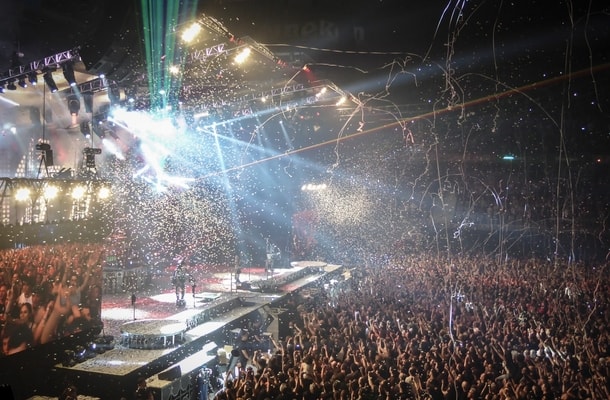
Barcelona is home to a number of international music festivals like Primavera Sound and Sonar Barcelona, putting the city on the map each year as a live music destination.
As we look towards the future of this productive, and at times turbulent, partnership, our very own ecosystem here in Barcelona can provide fruitful insights. Next week brings the 25th anniversary of Sónar Barcelona. The festival will see the world’s top movers in electronic, experimental and forward-thinking music once again flock to our city for the three day event, accompanied by Sónar +D, a three day congress dedicated to technology, creativity and business. Founded in 1994 by Ricard Robles, Enric Palau, and Sergi Caballero, this isn’t the only event that has put Barcelona on the musical world map. Last weekend brought crowds to our city from all over the world for Primavera Sound festival, to see international names like Arctic Monkeys, The National, and Bjork take to the stage at the waterfront Parc del Forum. The acclaimed festival was attended by over 200,000 people last year, with Primavera PRO simultaneously bringing together cutting-edge music industry and technology professionals. Additionally, Barcelona is home to both the industry’s Future Music Forum and the Mutek festival of innovation for electronic music.
Add to that list Barcelona’s status as host to the largest mobile gathering worldwide, the Mobile World Congress and its little sister startup-focussed event, Four Years From Now. A unique formula of international tech talent, investors, educational institutions, startup accelerators and angels, coworking spaces (not to mention the climate and coast!) have coalesced to transform our city in recent years into a small, but ever strengthening, hub for startups and technology companies looking for a city to call home.
Indeed, it was the city’s unique status as both a profoundly (and historically) artistic place, as well as a forward-thinking startup ecosystem, that brought me here as both a tech writer and musician a little less than a year ago. Against the backdrop of a city bursting with rich cultural and artistic history, Barcelona is taking an ever-larger role in the global music industry on one axis, and becoming a centre of international technological innovation on another axis. At the meeting point of these two axes lies a budding hub of music technology startups, initiatives and organizations in our city. As an individual with a passion for music, innovation and this city too, I believe this unique constellation of music and technology makes the Barcelona music technology scene a perfect case study to help us examine the current state of the tempestuous and transitory relationship between music and technology in the modern age.
To explore this further, I’ll be taking a journey through a few of the most exciting music technology companies I’ve come across in our city, and what they show us about the present and the future of MusicTech. Jump on board!
Barcelona’s Most Exciting MusicTech Startups
The Streaming Effect
In 2016, streaming accounted for more revenue than downloads, CDs and vinyl combined and last year made up 65% of the industry. It’s for that reason that 2017 saw the highest music industry revenues since 2008. Streaming dates right back to when three teenagers launched illegal file-sharing service Napster in the summer of 1999. As legal streaming services have exploded in recent years, it’s sparked fierce debate on what a transition to an access-based consumption model (from an ownership-based model) really means for listeners, artists and labels alike. A key talking point has been how much of that revenue from streaming ends up in the hands of the artists themselves. Studies show Spotify pays out about $0.0038 per stream to unsigned artists, and $0.0044 to signed artists. This has led to a number of notable boycotts from leading artists like Taylor Swift, The Black Keys, Coldplay and Thom Yorke, who went so far as to call the Swedish streaming service “the last desperate fart of a dying corpse”.

Last year, streaming made up 65% of the music industry. Startups are addressing how this can be converted into fair incomes for artists as well as great experiences for users.
Spotting an obvious pain point for artists trying to make a living in this technological climate dominated by low-income streaming, MonkingMe was founded by Barcelona locals Raul and Miquel, with the aim of taking advantage of the virality of the free music streaming, whilst also empowering artists through real income sources, merchandising and concerts. They told us they decided to stay in Barcelona to set up their business thanks to the strong startup infrastructure: from government funding for tech companies to co-working spaces, that to them, make Barcelona the Silicon Valley of Europe. Their model represents a movement towards streaming services orientated towards artists. We see music technology reacting to the consumption model by helping ensure bands get paid when their music gets played. Seems like a no-brainer, right? As MonkingMe founder Raul told us, ”the bigger companies are not changing the digital scenario of music”. Their up-and-coming, more ethical streaming model presents an alternative to music lovers wanting to support the artists they know and love.
Aside from the financial implications of the streaming age, there’s also the extra administrative work involved for artists wanting to upload their work to multiple platforms at once, maintain visibility on fan engagement in real-time and manage royalties and sales. Sonosuite was founded in Barcelona by Jose Luis Zagazeta and Maarten van Wijck to address just that. It offers an all-in-one solution that helps artists to manage digital distribution services, without the need for an external supplier to effectively monetize their output. Whilst music technology has traditionally focussed on fan and listener experiences, companies like Sonosuite represent a drive in the music technology movement to help artists navigate the complex and often inequitable terrain of the streaming age, along with the principal question it provokes: how can artists actually make money from their music in this context?
The demand for tech to provide solutions to this issue will amplify as artists move away from traditional band-label models – a transition we’re seeing particularly among artists so often victimized or mistreated by the corporate music industry that are now choosing to ‘go it alone’ and ‘break the scene themselves’. The breakdown of traditional industry models means processes previously handled by record labels are increasingly being taken up by the artists themselves, thanks to the power of social media, accessible home-production tools, and technologies such as Barcelona-based Sonosuite that help to empower the independent artist to manage processes, production and distribution autonomously, without the need for the prowess and resources of a record label.
Big (Music) Data
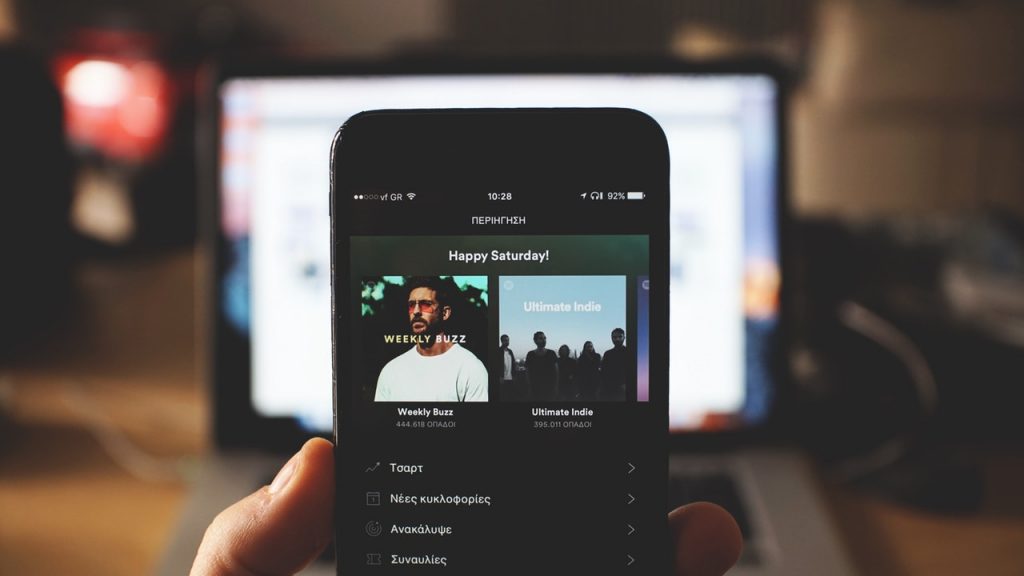
The fragmentation of music distribution (through services like Spotify) presents issues for artists in terms of realtime data management and sales insights.
Another Barcelona-based startup, BMAT was also born out of the desire to bring artists the recognition and reimbursement they deserve, that’s become problematized by the fragmented nature of how music is shared, distributed and owned in the modern age. BMAT began as a research group in the MTG, at Universidad Pompéu Fabra, and launched as a startup comprised of 28 engineers living and working in Barcelona. They bring what’s become known as ‘big data’ into the music technology sphere, and they’re not aiming low: their founding idea was “to index all the music in the world”. Today they monitor channels such as television, radio, music venues and digital services to produce reporting and metadata on songs being played, and who owns the rights to those songs. They told me “music usage is wider than ever before and the music industry demands very accurate and reliable data-management skills”. Though other industry fields have innovated to be able to manage data reliably and effectively, there’s a notable gap in data-management in the music industry, in particular with relation to public communications. BMAT cited Barcelona as the perfect combination of a source of tech talent, and a European music hub, providing fertile ground for their disruptive data-driven startup. GDPR is now in play, putting the spotlight on how our data is used and managed: the music industry is no stranger to this. Startups like BMAT are evidence of companies rising to meet the need for more egalitarian and more thorough data management across the industry.
Bridging the Gigs Gap
Though the consumption of recorded music has undergone serious changes as a result of technology, the live music industry has been slow on the integration of innovative technologies to improve experiences for fans and artists alike. Take for instance, the world’s largest artists still struggling to find successful solutions to ticket scalping and unfair resale on secondary sites. This lag in the live music industry was noted by the founder of Acqustic, Esteve Lombarte Lladó. They told us their Barcelona-based startup was born out of a conversation at a barbeque about how tricky it is to book live artists for independent events. There are live musicians all over the city, and events needing live music – but how to bring the two together? The founding members studied in Barcelona and stayed as they were attracted by the city’s burgeoning tech and startup community, complete with talent, investors and services for young companies like them. Now, their platform boasts over 500 musicians, and connects them to those seeking live music for events, parties or festivals. They told me they wanted to educate consumers about live music, increase transparency in the industry (all prices are visible up-front on their site) and democratize the process of commissioning live music to make life easier for organizers and musicians alike. The rise of startups like Acqustic presents a reaction to the costly, increasingly corporate world of large-scale gigs, and a push to mobilise more personal, intimate live music experiences in front rooms, gardens and terraces, connecting event organizers and musicians in the process. Their favourite gig I asked? An old library surrounded by vintage books, a small audience sitting on cushions on the floor and local musicians giving it all they’ve got.
Live Goes Digital
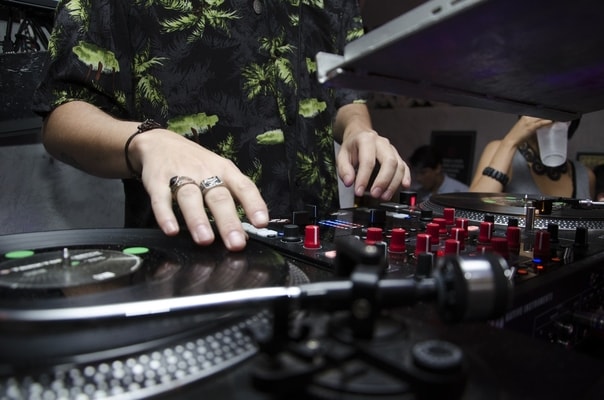
Barcelona-based Conductr offers DJs and live musicians a personalisable Ableton and Traktor controller
The most obvious collision of music and tech? The first thought for most of us is most likely the music itself. The endless beats, genres, wacky sounds, tracks and production tools made possible by technology. Now this is a whole story in itself, but I’d like to narrow down on one small element of a Pandora’s box of electronic music and tech-infused beat-making, the world of audio sequencing and live performance of electronic music. The landmark moment for this phenomenon came in 2001 with the release of digital audio workstation Ableton Live by graduates of the Berlin techno scene, Gerhard Behles and Robert Henke. Ableton removed the need for musicians to have programming skills to perform live whilst using computers and controllers as instruments. Today, Conductr continues to throw this field wide open and cater to the needs of DJs and musicians in the form of their innovative, personalizable controller for Ableton as well as Traktor. The key here is a fully mobile-oriented modular environment, and customization: performers can customize modules to their particular needs on devices like iPads via a simple and accessible user interface. Created by Barcelona music technology startup Patchworks that raised its first €100.000 investment round just four years ago, Conductr presents novel opportunities for artists looking to balance the spontaneity of live performance with a modular setup.
Music Therapy
Research continuously finds that music can improve mental, physical and cognitive health and even treat pain. Newborns can now be helped to regulate their own heartbeat and calm themselves with the help of specially developed rhythmic therapies. The first music therapy degree program in the world was founded in 1944, at Michigan State. Today it remains a growing field of research and application in particular for neurological diseases, mental health and trauma patients. So what happens when that unique power combines with technology to advance music therapy and bring it to wider audiences?
Tech startup A-Muse has developed a therapeutic solution that supports health facilities by increasing patients motivation for therapy via a very unique product. Essentially their ‘station’ allows patients with limited mobility to compose music by moving parts of their body: meaning a head movement becomes a drum fill or a wave of the hand a guitar strum. I ‘met’ the A-Muse ‘station’ at Four Years From Now, and was amazed at the sensitivity of the device to recognise subtle movements, a game-changer for patients with limited mobility. Their product generates crucial data which helps monitor patients’ progress, and facilitates better engagement and motivation from the patients themselves. Music as a therapy is an age-old phenomenon, but the integration of data management technology now makes this a powerful research tool, the results of which can be shared with institutions worldwide.
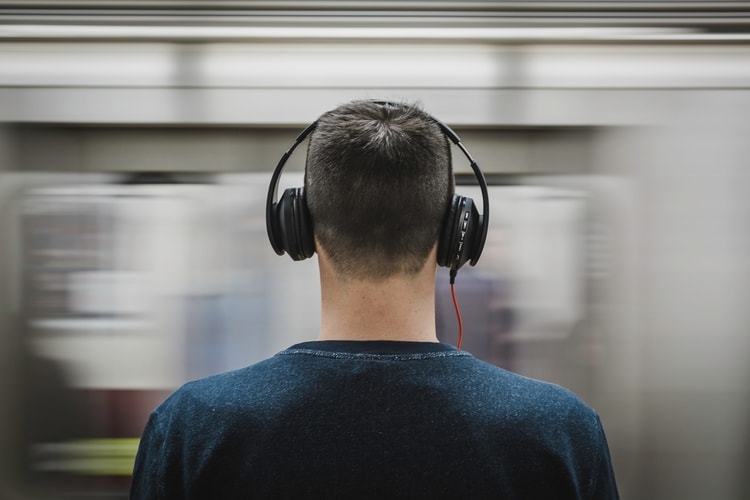
Music therapy is an age-old approach to treatment, but the introduction of technology has taken the phenomenon to more audiences via new pathways.
The Parkinsons App, founded in Barcelona, uses technology to leverage the potential of music therapy in new ways. It’s an app for sufferers of Parkinson’s disease, that helps to stimulate brain activity, improve state of mind, and help with coordination of movements. It’s founder Teresa Fèrriz PhD recently spoke of music as “a natural remedy with no side effects”. Though they saw a number of e-health technologies specifically for Parkinson’s patients, they saw a gap in the form of a service that connects individual patients that might not have the resources for expensive music therapy, nor the mobility to attend sessions, with the unique healing power of music. Their scientific advisory board is linked to Barcelona’s Hospital de la Santa Creu in Sant Pau as well as the Faculty of Health Sciences at the Open University of Catalonia and their product was born of out the needs of specific communities of patients in Barcelona and its surroundings. The personalised nature of the app tailors experiences for each patient based on their sonorous-musical history and current mood. In particular for individuals with this condition, the design of an easily-accessible app which can be used from home or their local park, or whilst waiting for the bus, presents big opportunities for greater treatment consistency and self-regulation, since it doesn’t rely on travel to therapy sessions or hospitals.
These cutting-edge music therapy startups are bridging the worlds of MusicTech and e-health to deliver life-changing solutions that bring the proven healing power of music to more individual patients. But that’s not all: they’re also powering international research into these conditions through the multi-directional capacity of these solutions to collect patient data too. This data will enable them to further develop and optimise their products, and shape solutions of the future too.
Conclusion: Barcelona’s Thriving MusicTech Scene
Barcelona is no Silicon Valley for the tech community, nor is it the London or LA of the music scene, but its status as a budding hub within the international startup community, as well as an ever-growing music destination and European cultural centre, places our vibrant city in a unique position. This coming together of global forces has given life to a collection of innovative and forward-thinking companies fusing music and technology to change the way we as individuals, artists, listeners and innovators interact with music. The small collection of companies mentioned here represent just some of the ways Barcelona music technology startups are making waves in this fast-paced industry, and can provide a glimpse at the future direction of this phenomenon.
With Sónar Barcelona close on the horizon, and with the memories of Primavera Sound still heavy in the air, this week felt like the moment to take a deep-dive into today’s particular musical and technological moment in our city, which certainly wouldn’t be possible without the environment fostered by the place itself. The future looks full of further challenges and uncertainties in terms of how we manage data, how we ensure artist rights, whether ethical or equitable streaming is even possible, how music can be used outside the industry to improve lives and treat conditions, how fans and artists can communicate and how live experiences can be optimised to bring those fans and artists together in more productive and fruitful ways. What’s for certain is that we’ll keep seeing innovators and entrepreneurs meeting these burning questions with technological creations – and Barcelona will continue to provide fertile ground for some of the most exciting and inventive of those creations.


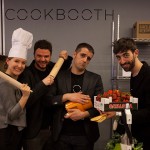
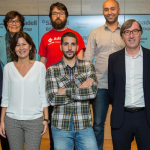
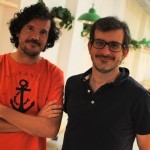


Leave a Reply